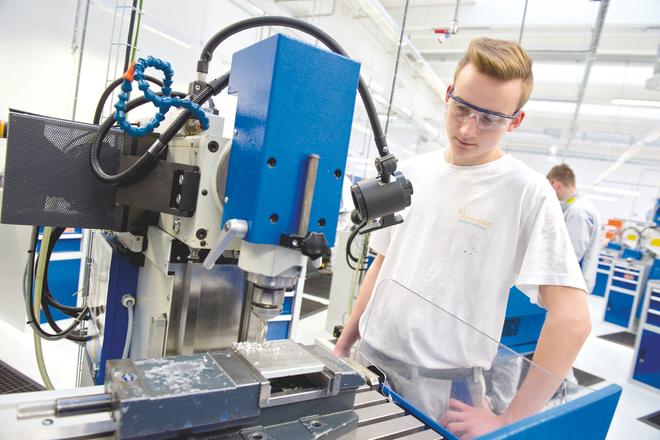Slovakia is likely to return millions of euros to the European Union’s coffers if it fails to meet its goal of enrolling at least 12,000 students in the dual education system by 2020, employers’ representatives warn.
So far, around 2,800 students from 80 secondary vocational schools have joined the system in its first two years of operation, the Education Ministry’s statistics show.
Employers point mainly to the lack of state support and insufficient awareness of the system and its benefits among primary school pupils and their parents. Career counselling should play an important role at schools, but observers admit it is not working properly.
“Educational consultants don’t have enough time for individual career counselling which is badly needed at schools,” Alžbeta Štofková Dianovská, chair of the Association of Educational Advisors, told The Slovak Spectator.
Primary schools important for technical studies
Observers agree the motivation to study technical specialisations should already start in primary school.
“It is a basic prerequisite for successful vocational education and preparation for employment based on market needs,” Viliam Gonda, head of the Department of Informatics and Communication at the Slovak Chamber of Commerce and Industry, told The Slovak Spectator.
But many specialisations currently lacking in the labour market are gradually disappearing, or have already vanished from schools. Now companies are trying to re-launch them, for example, with dual education, said Lucia Nacíková from the Amrop consulting company.
It is important to actively contribute to increasing the quality of education and its connection with the needs of employers in regards to the rising quality of graduates and their entrance into the job market, adds Peter Rusiňák, policy officer and coordinator for the committee on business-academic cooperation at the American Chamber of Commerce in Slovakia.
“Given the creative potential children naturally possess, we believe the education system at primary level should stipulate their technical as well as soft skills, respectively,” Rusiňák told The Slovak Spectator.
If children are not motivated to focus on technical subjects at schools, they often pick grammar school or a business academy for their future studies, and end up at university with a focus on humanities, according to Luboš Sirota, deputy chair of the board at the consulting company McRoy Group.
Moreover, many children shy away from technical specialisations because they are afraid of maths. Overcoming these fears and presenting science and technology in a motivating way are important for primary school teachers, opines Guido Glania, president of the German-Slovak Chamber of Commerce and Industry.
Making the right choices
To increase the interest in technical studies, the State Institute for Vocational Education (ŠIOV) has introduced a new subject - technology - and has trained teachers of physics, biology, technology and chemistry to use interactive methodology and encourage their pupils to focus on technical subjects, said Lenka Dorčáková of ŠIOV.



 (source: TASR)
(source: TASR)